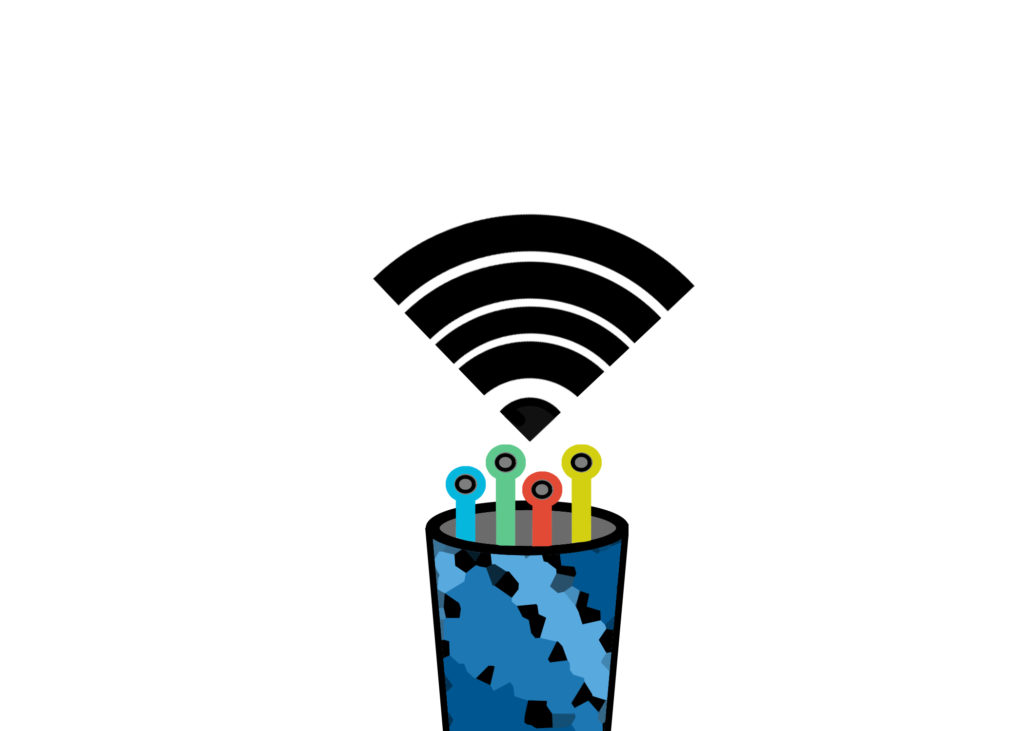It looks as though the days of buffering videos, dropped credit card transactions and endless spinning wheels may be no more as the Chamber of Commerce and City Government of Grinnell look towards the installation of fiber-optic internet throughout Grinnell through a possible partnership with Mahaska Communications Group (MCG).
It’s a move years in the making, according to Chamber of Commerce director Rachael Kinnick, but only recently entered the realm of concrete possibility through the involvement of MCG, a division of Musco Lighting in Oskaloosa, Iowa. After convening community member focus groups over two years ago to set new goals for Grinnell’s downtown and to ensure that existing capital projects were being utilized, the Chamber and City government identified accessible, reliable Wi-Fi as a need to be addressed.
“We’ve really spent the last part of two, two and a half years meeting with various providers to better understand what they currently have in the community and what they’d be willing to put into the community in terms of infrastructure, and what that might cost,” said Kinnick.
Fiber-optic cables send information coded in a beam of light down a glass or plastic pipe. This technological innovation allows them to carry information with less signal loss, no interference and high bandwidth, and also makes the cable installation process more expensive.
No concrete plan emerged from these meetings as most providers weren’t willing to put fiber into the community, or were content only to offer their existing services. Those who were interested in installing fiber either required a large investment from the city or only served commercial or residential entities.
Although Kinnick is the director of the Chamber of Commerce, a body that primarily serves the community through engagement with local businesses, her goal was always to get fiber-optic internet that could be accessed by the entire Grinnell community. Kinnick said many individuals work from home, or continue their work at home, blurring the lines between business and residential use of Wi-Fi.
Enter MCG.
Four months ago, MCG reached out to the Chamber of Commerce and the City, offering a solution to this problem. Although Grinnell stakeholders had previously spoken to MCG about Wi-Fi six years ago, the Group had spent those years developing their business model and expanding from a sole base in Oskaloosa to New Sharon, Montezuma and Lake Ponderosa in 2018. In the plan proposed by MCG, the company would fund the cable installation themselves and be reimbursed via the purchase of plans and packages.
“I’m sure that they would love that in the future if we were able and willing to do that,” Kinnick said, “but that has not been a contingency of them coming. They want to largely know that there is a market that will be supportive of them coming to the community.”
MCG, aided by the City and Chamber, is currently surveying Grinnell community members to identify the extent of that market. Looking at the comment section on the Chamber’s website, the town would seem to be in favor of fiber.
“We would love fiber optic internet! We have [four] kids who all have devices plus we do some of our work from home and running streaming for cable. Our internet gets bogged down and slow,” wrote Melinda Chandler on April 5.
If the city goes ahead with MCG, the cable would be installed neighborhood-by-neighborhood, beginning in 2020, possibly extending into 2021. Although currently the plan includes only those within the city limits of Grinnell, Kinnick is looking towards implementing fiber outside of the city limits, in the more rural locations of the greater-Grinnell area. She said she encourages those who live outside of the 50112 zip code to take the survey as well, as MCG will develop the project based on community feedback. Public Wi-Fi is also something that has been discussed in the City’s meetings with MCG.
“Traditionally when people thought of economic development they thought of brick and mortar and the actual infrastructure of a particular building. Now we’re thinking more community-development based, things that make [a community] attractive for people to want to take jobs at your companies,” Kinnick said.
This more holistic view of economic development is present throughout many of the Chamber’s projects in recent years, including commissioning the childcare accessibility report released last month. Access to fiber and broadband is one of the new elements of development present at the local, state and federal level, in policy and politics, with programs like the USDA’s Community Connect Grants which subsidize broadband internet for communities who don’t attract the private sector for Wi-Fi.
“Fiber is really important as we move forward,” Kinnick said. “Of course, with technology changing and adding more need and dependency on technology, I think we’ll just continue to see that need increase.”



























































